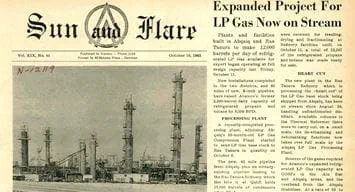Safety at Work
RT Refinery Clean Fuels Project records 45 million safe man-hours

Global November 23, 2020 - By
Despite the outbreak of COVID-19, project workers exhibited excellence in safety in extreme weather conditions and with a multicultural mix of workers.
The Ras Tanura Refinery (RTR) Clean Fuels Project achieved 45 million safe man-hours without a single work-related fatality or lost-time incident since construction began in July 2017. This distinct safety achievement, reached in a complex brown-field environment that included extreme temperature and humidity, as well as an extraordinary multicultural mix of workers and the related communication and coordination problems, was the result of a collaborative effort made by the Integrated Project Team.
The Refining and NGL Projects Department (R&NGLPD) focused on identifying and controlling hazards, reducing exposure to health and safety risks, as well as supporting the general health and well-being of project team members.
Moreover, the project was able to continue working toward the record despite the COVID-19 pandemic — mostly by maintaining strict compliance and adherence to precautionary measures set by the Ministry of Health. Not only that, the project also took additional measures such as the deployment of portable voice amplifiers to ensure social distancing at the construction site.
The project also controlled the spread by increasing the number of buses transporting workers from and to the construction site.
The Project
The RTR Clean Fuels Project will provide facilities to support Aramco’s corporate objective of effectively supplying diesel and gasoline products that comply with the future gasoline and diesel quality specifications as per Euro-V fuels quality standards. The new naphtha complex plants that will be installed as part of the project at RTR will be comprised of a 138,000 barrel per day (bpd) naphtha hydrotreater, a 90,000 bpd reforming unit, and a 65,000 bpd isomerization unit, which are classified as the world’s largest naphtha processing facilities.



